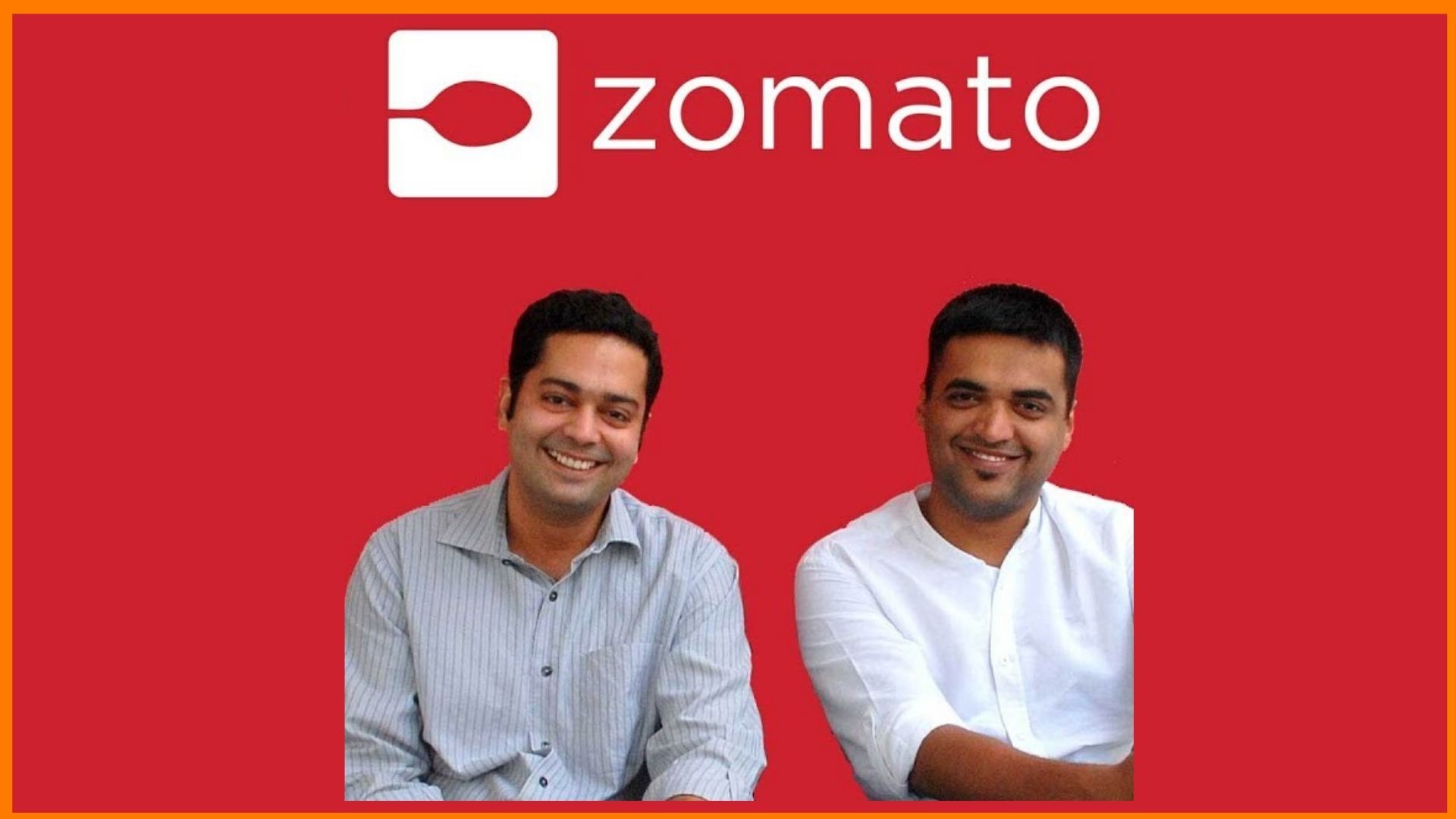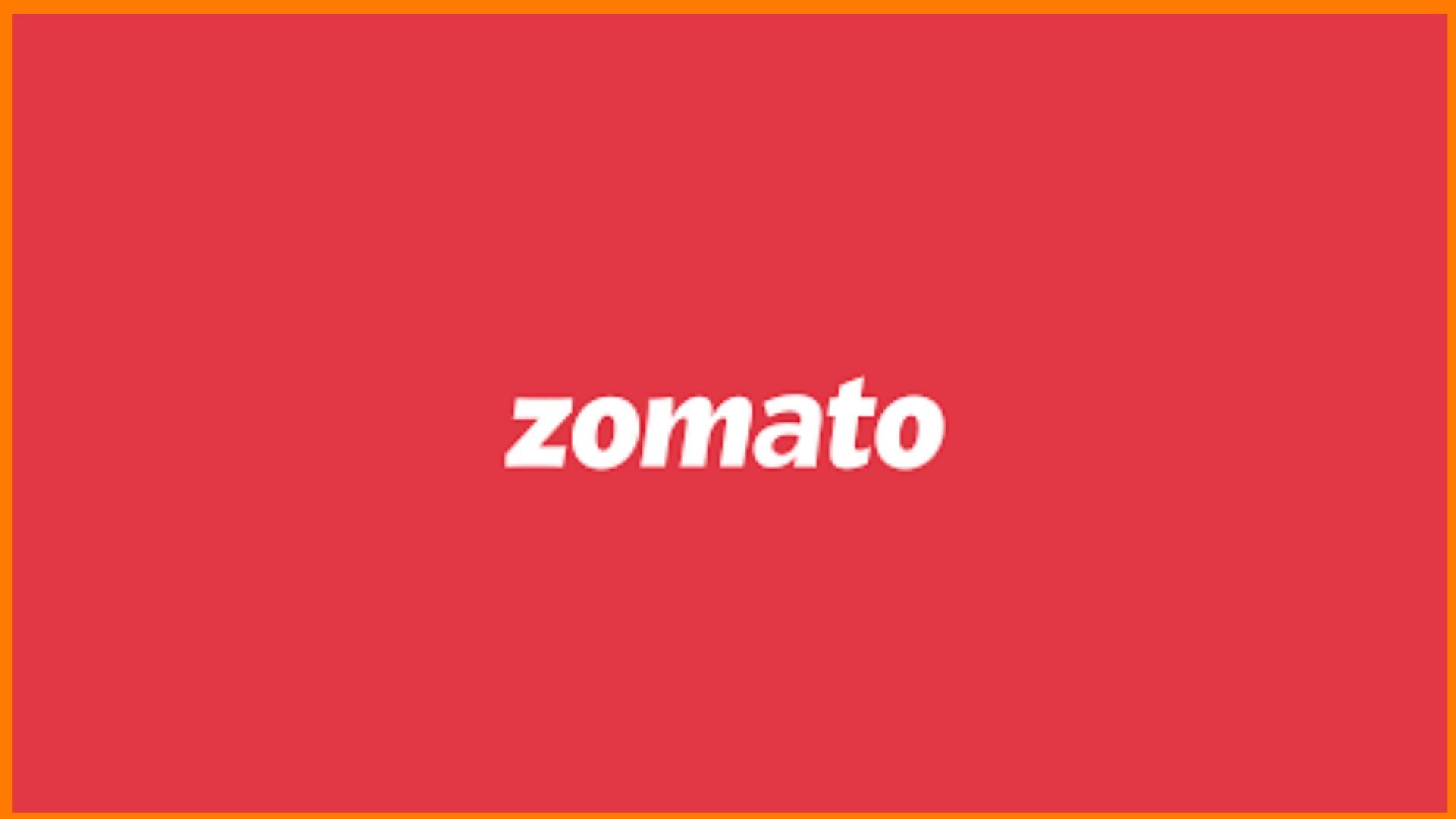
There were days when we used to call different restaurants to place orders and again call up for corrections and directions and reservations. Then came in applications like Zomato who reversed the whole scenario and made it extremely simple for the consumers. Deepinder Goyal and Pankaj Chaddah founded Zomato in 2008 that further aided this process of eating out and food delivery.
Zomato - Company Highlights
| Startup Name | Zomato |
|---|---|
| Headquarter | Gurugram, India |
| Sector | Food Delivery |
| Founders | Deepinder Goyal, Gaurav Gupta, Pankaj Chaddah |
| Founded | 2008 |
| Parent Organization | Zomato™ Media Pvt Ltd. |
| Website | zomato.com |
About Zomato and How it Works
Zomato - Founders & Team
How was Zomato Started?
Zomato - Startup Launch
Zomato - Name, Tagline, and Logo
Zomato - Business Model and Revenue Model
Zomato - Hyperpure
Zomato - Zomaland
Zomato - Startup Challenges
Zomato - Competitors
Zomato - Funding & Investors
Zomato - Acquisitions
Zomato - Growth

About Zomato and How it Works
Zomato is an Indian food delivery startup restaurant aggregator. Zomato primarily provides concrete information, menus, and user reviews of the restaurants. Along with this, Zomato also has food delivery options from partnered restaurants of the selected cities.

Zomato - Founders & Team
The founders of Zomato are Deepinder Goyal and Pankaj Chaddah. Both are IIT graduates and were working with Bain & Co in New Delhi before they came together to launch Zomato.

The Zomato recruiting team is of the ideology that hiring the correct people is primary for their company's startling growth. Also, recruiting this pool of employees was one of the major milestones achieved while building the foundation of Zomato. Now, the company has a squad who are vital in bricking their dream project.
How was Zomato Started?
All of it started when the founders, Deepinder Goyal and Pankaj Chaddah were in their office in New Delhi and they came across so many people who were waiting for a long time just to acquire a flash of the menu card. And in that exact moment, the idea for obtaining a solution was planted in this duo’s minds and that led them to launch Zomato, formerly known as ‘Foodiebay’.
Wondering what they begin with? They uploaded the soft copies of the menu cards on the website. Following this, everyone in the office started using this which led to a lot of time-saving for them. Subsequently, this increased the traffic on their website and soon enough they expanded their website to make it available to everyone in the city.

Zomato - Startup Launch
When the founders launched this website, it wasn’t called Zomato back then, it was called Foodiebay. And it initially started out in Delhi, then the services were extended to cities like Mumbai and Kolkata.
With the tremendous user base and growth rates that Foodiebay brought in to the founders, they decided to modify it and take it international. And that’s when this venture started being called Zomato, as we know of it today. It was in 2010 when Foodiebay was officially rechristened as Zomato.
Zomato - Name, Tagline, and Logo
The founders changed Foodiebay to 'Zomato' to make it more prominent, simple to memorize and primarily to eliminate the confusion with the website eBay.
Zomato's tagline is "Never have a bad meal".

Zomato - Business Model and Revenue Model
The main source of revenue for Zomato now is the advertisements channel that the portal offers to display. This accounts for most of its revenue followed by the commissions that it charges to the restaurants. It works on a commission business model.

Zomato - Hyperpure
Hyperpure by Zomato is changing the way restaurants work. It is Zomato’s B2B foodtech vertical. Hyperpure allows restaurants to buy everything online from vegetables, fruits, poultry, groceries, meats, seafood to dairy and beverages. It claims to be working directly with farmers, mills, producers, and processors to source these products thus ensuring quality and consistency.
It is an initiative by Zomato to provide fresh, hygienic, high quality ingredients and supplies.

Zomato - Zomaland
Zomaland is India's Grandest Food and Entertainment Carnival that brings together some of the top eateries, musicians, DJs, comedians, and interactive installations and carnival games, under one roof. It is like the offline version of its Zomato Collections, where it curates and brings the best restaurants in the city together.
It is a flagship event of Zomato. In 2018, The debut edition of this carnivalacross Delhi, Bengaluru and Mumbai saw over 100,000 visitors. Since then it has grown to be held in over 10 cities and has also partnered with major brands including the Singapore Tourism Board.

Zomato - Startup Challenges
The most significant hurdle in the Zomato journey was to find a way to cover all the restaurants in all the areas in all the pivotal cities so that the consumers who hinge on them do not miss the finest restaurants in the locality. This milestone has been omnipresent since the inception and continues to drive considerable efforts on the venture’s part.
But this is not it. Time to time, Zomato was made to face quite a few bigger challenges that were "make or break" situations for the team. In 2015, Zomato had to lay off 300 employees to curb losses which obviously had large scale implications on the organization as 10% of this layoff was in the US. In the same year, in the States, Zomato had acquired Urbanspoon and rebranded the company as their own. Unfortunately, the rebranding did not come out as expected and the venture failed miserably.
In 2016, things went so out of control that as a result, Zomato had to roll back its operations in several countries including the US, UK, Chile, Canada, Brazil, Sri Lanka, Ireland, Italy, and Slovakia. And when they resumed presence, Zomato had to resort to remote services.
Then came the year when Zomato's existence went at stake when in 2017, it faced it’s biggest cyber attack with a hacker that had breached into 17 million user records from the company database. While its concern were overpayment and user card & account details being accessed by the hacker, Zomato soon claimed that only the hacker could only have access to the names, user IDs, email addresses, usernames, and password hashes. Soon after, this breach was resolved by communicating with the hacker and as it came out he just wanted to prove that there were security loopholes in the system.
In 2019, the #logout campaign surfaced when the restaurants listed on the portal called out on it for eating into their profit margins through Zomato Gold and Infinity Dining features, a Zomato feature that provided heavy discounts. And it so happened that the restaurant association highlighted these issues like “unreasonably high commissions, payment terms and arbitrarily applied additional charges” that the restaurants were being charged to be a part of the Zomato initiative, Zomato Gold.
Post this campaign, Zomato discontinued the Infinity dining service, also revised and altered Zomato Gold rules while laying off and also faced tremendous protests from the partnered restaurants.
Despite all of this, Zomato registered a rise of 177% of restaurant partners and got on board an additional 73K restaurants. As of now, Zomato has close to 119K restaurants, compared to 43K restaurants in 2019.
Zomato - Competitors
Though Zomato is very predominantly present in the industry, it does face a lot of direct and indirect competition. Zomato faces direct competition from Swiggy, and indirect competition from regional food delivery applications like SendMe, etc.

Zomato - Funding & Investors
To date, Zomato has had 17 funding rounds and raised close to $914.6 million in these rounds. Its most recent funding came in April 2020, Series J round by Baillie Gifford for $5 million.
Here is a list of all the funding rounds of Zomato -
| Date | Stage | Amount | Investor |
|---|---|---|---|
| September 2011 | Series A | $3.5 Million | Info Edge |
| September 2012 | Series B | $2.3 Million | Info Edge |
| February 2013 | Series C | $10 Million | Info Edge |
| November 2013 | Series D | $37 Million | Info Edge, Sequoia Capital |
| November 2014 | Series E | $60 Million | Info Edge, Vy Capital |
| April 2015 | Series F | $50 Million | Info Edge, Vy Capital |
| September 2015 | Series G | $60 Million | Temasek Holdings, Vy Capital |
| April 2017 | Series H | $20 Million | Sequoia Capital India |
| February 2018 | Series I | $200 Million | Ant Financial |
| October 2018 | Series J | $210 Million | Ant Financial |
| February 2019 | Series J | $35 Million | Glade Brook Capital Partners |
| March 2019 | Corporate Round | $55 Million | Delivery Hero |
| January 2020 | Corporate Round | $150 Million | Ant Financial |
| April 2020 | Series J | $5 Million | Baillie Gifford |
Zomato - Acquisitions
In 12 years of its existence, Zomato has acquired close to 14 companies. Their most recent acquisition was Uber Eats - India on Jan 21, 2020. They acquired Uber Eats - India for $206M.
| Acquired | Date | Price |
|---|---|---|
| MenuMania | July 2014 | - |
| Obedovat | August 2014 | - |
| Lunchtime | August 2014 | - |
| gastronauci.pl | September 2014 | - |
| Cibando | December 2014 | - |
| Urbanspoon | January 2015 | $55 Million |
| Mekanist | January 2015 | - |
| MapleGraph Solutions Private Limited | April 2015 | - |
| Nextable | April 2015 | - |
| Sparse Labs | September 2016 | - |
| Runnr | September 2017 | - |
| Tonguestun Food Network Pvt Limited | September 2018 | $18 Million |
| TechEagle | December 2018 | - |
| Uber Eats India | January 2020 | $350 Million |

Zomato - Growth
- By 2011, Zomato had successfully established a monopoly in Delhi NCR and had moved to other Indian cities like Pune, Bangalore, Chennai, Hyderabad, and Ahmedabad.
- Zomato also kept up with the smartphone boom and timely launched its mobile application. This greatly contributed to its growth.
- By 2012, Zomato had begun its overseas operations, full-fledged in countries like UAE, Sri Lanka, Qatar, United Kingdom, Philippines, and South Africa.
- In 2013, it added Turkey, Brazil, and New Zealand to its ever-growing list of expansion.
- In 2017, Zomato claimed that it was operating profitably in all 24 countries along with rolling out a zero-commission model. The company claimed that its revenue grew by 81% in this particular year.
- In the same year, the online ordering services of the company crossed the mega milestone of 3 million orders per month.
- If we look at the numbers, Zomato has recorded a 225% rise in revenue in the first half of Financial Year 2020.
- According to Zomato, it has registered $205 Million in revenue as compared to $63 Million in the first half of 2019.
Link : https://startuptalky.com/zomato-success-story/
Author :- Rishabh Rathi
July 11, 2020 at 04:58AM
startuptalky

